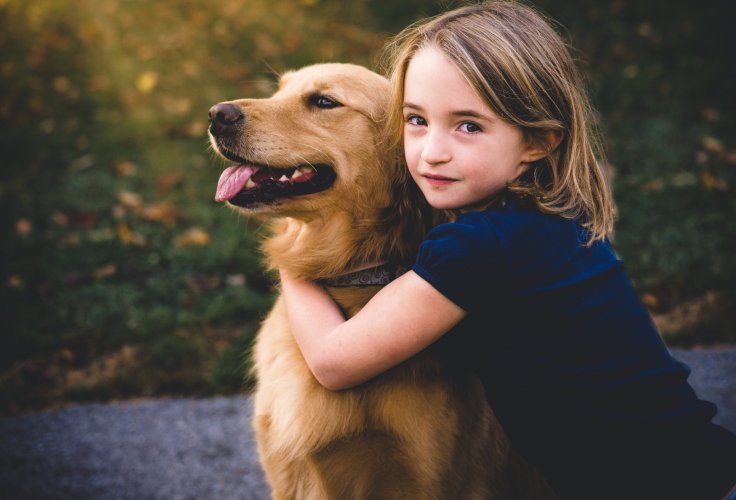Australian researchers found that a dog's presence in the house is linked to the development of children in the house. Faculties such as their emotional state and social skills get developed much better than the children grown up in houses without pets.
The fact that physical activity contributes to the development of children being active is known. It is also shown from early studies that children with dogs in their families are more active, almost 30 minutes more in a week, longer than their peers.
The deficiency of physical activity leads to an increase in the incidence rates, which experts believe as a major public health problem.

Spend More Time With Dogs
New research by scientists from the University of Western Australia and the Telemedicine Institute for Children suggests that, in addition to the increase in physical activity, families should raise the time spent with dogs to a recommended norm of at least three hours per day like adding a game or walking the pet.
The paper published in Nature's Journal of Pediatric Research on Monday said, "Due to the high level of pet ownership in households with children, these findings suggest having a dog and interacting with it through play and walking may be important mechanisms for facilitating young children's social–emotional development."
Researchers studied the results obtained from a 2015-2018 study by the PLAYCE program, on studies about the features of pre-school education, and the family environment.and how they contribute to the development of children.
The Study
Researchers received questionnaires from 1,646 families having children aged from two to five years. The questionnaire assessed children's strengths and difficulties and questions on whether there was a dog in the family. Almost 686 families had pets.

Hayley Christian, one of the authors of the study said that they were surprised that how the presence of a dog in a family simply changed the behavior and the "amount of positive emotions."
Factors like the child's age, gender, day regimen, duration of TV screen exposure or PC monitor or a phone screen, and also parents' level of education.
The results showed that children with pets were 23 percent less likely to have difficulty in controlling their emotions and building social ties, 30 percent less likely to show aggression and antisocial behavior, while 40 percent were less likely to have communication problems with other children.
One more factor is the child's degree of attachment to the dog, as it was linked to the ability to show social activity and empathy. However, scientists don't know why exactly this happens. That might also be out in their next research.









